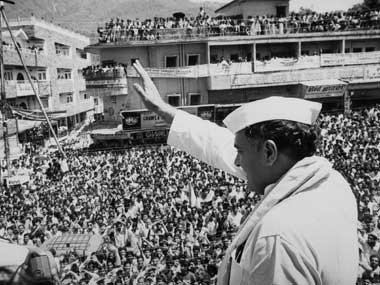The silence speaks louder than the words. Here’s how. Fifteen other persons were killed besides former Prime Minister Rajiv Gandhi on that fateful day in Sriperumbudur in May 1991 when an LTTE suicide bomber blew herself up at a meeting site. Their families are on a day’s hunger strike in Chennai today demanding that the three convicts on the death row in the case — Murugan, Santhan and Perarivalan — be hanged. They look isolated. The media has not worked itself to a frenzy defending their cause. There are not many, barring a few Congress workers, to offer company. It is almost as if they are making an unfair demand. The silence around them is intriguing. Compare that to the hype around the mercy petition of the trio being rejected by President Pratibha Patil. The President’s office was late by 11 years in clearing the plea. This “inordinate and inexplanable delay” was good enough reason for commuting their death sentence to life in prison. [caption id=“attachment_80364” align=“alignleft” width=“380”]  Fifteen other persons were killed besides former Prime Minister Rajiv Gandhi on that fateful day in Sriperumbudur in May 1991. The media has not worked itself to a frenzy defending their cause. Reuters[/caption] Prominent bleeding heart NGOs were quickly off the mark. Political parties joined in. DMK president M Karunanidhi, MDMK leader Vaiko, PMK founder Dr S Ramadoss and Tamil Nationalist Movement leader P Nedumaran were soon demanding commutation of the sentence. And there was a massive campaign under the banner Save Three Tamils Lives Movement. There were rallies, human chains and public meetings. The pressure tactic worked. The state assembly adopted a resolution to the effect. The high court stayed the hangings for eight weeks. Panelists on television debates were beseeching anybody who would listen to spare a thought for the agonies of the families of the trio. There were others making a case for the abolition of death penalty. The argument: 135 countries in the world have done away with it. Why continue with the barbaric practice? Fair enough. But the entire gamut of arguments leave out the original victims. There were Tamilians among them too. And their families suffered because of the insane act of the LTTE activists. The double standards rankle. Time is a great healer but the healing touch cannot be selective. Back in 1991, it was a cold blooded murder executed by a foreign terrorist organisation. It was the culmination of meticulous planning and execution; not a spur of the moment action like in the case of a crime of passion. The victim was a former Prime Minister and several other Indians. All this make the call of sympathy a bit misplaced. The US takes every death of its citizens anywhere in the world with great seriousness. It has been pursuing the case of two of its citizens killed in the 26/11 attack in Mumbai vigorously. Why must we be so casual about the killing of our citizens. Time could be healing souls but does not wipe off the taint of crime. The purpose here is not to get into the merits of the death sentence or justify the ’eye for an eye’ brand of retributive justice. The personal thought is, hanging a person ends his punishment too soon; staying isolated from society and human contact is a bigger punishment. The longer the duration the better. The debate over death sentence could be taken up at appropriate fora and its abolition, if it is okayed, could be made through the appropriate enactment. Why the hurry? And why the ruse of Tamil lives? It does not make sense. We know most of it is politics and some of it is intellectual loose talk. There’s no real sympathy around. But should not feelings of the victims’ families matter too?
The outpouring of feeling for the killers of the former Prime Minister is intriguing. Why is everybody silent about the feelings of the families of others killed with Rajiv Gandhi?
Advertisement
End of Article


)
)
)
)
)
)
)
)
)



